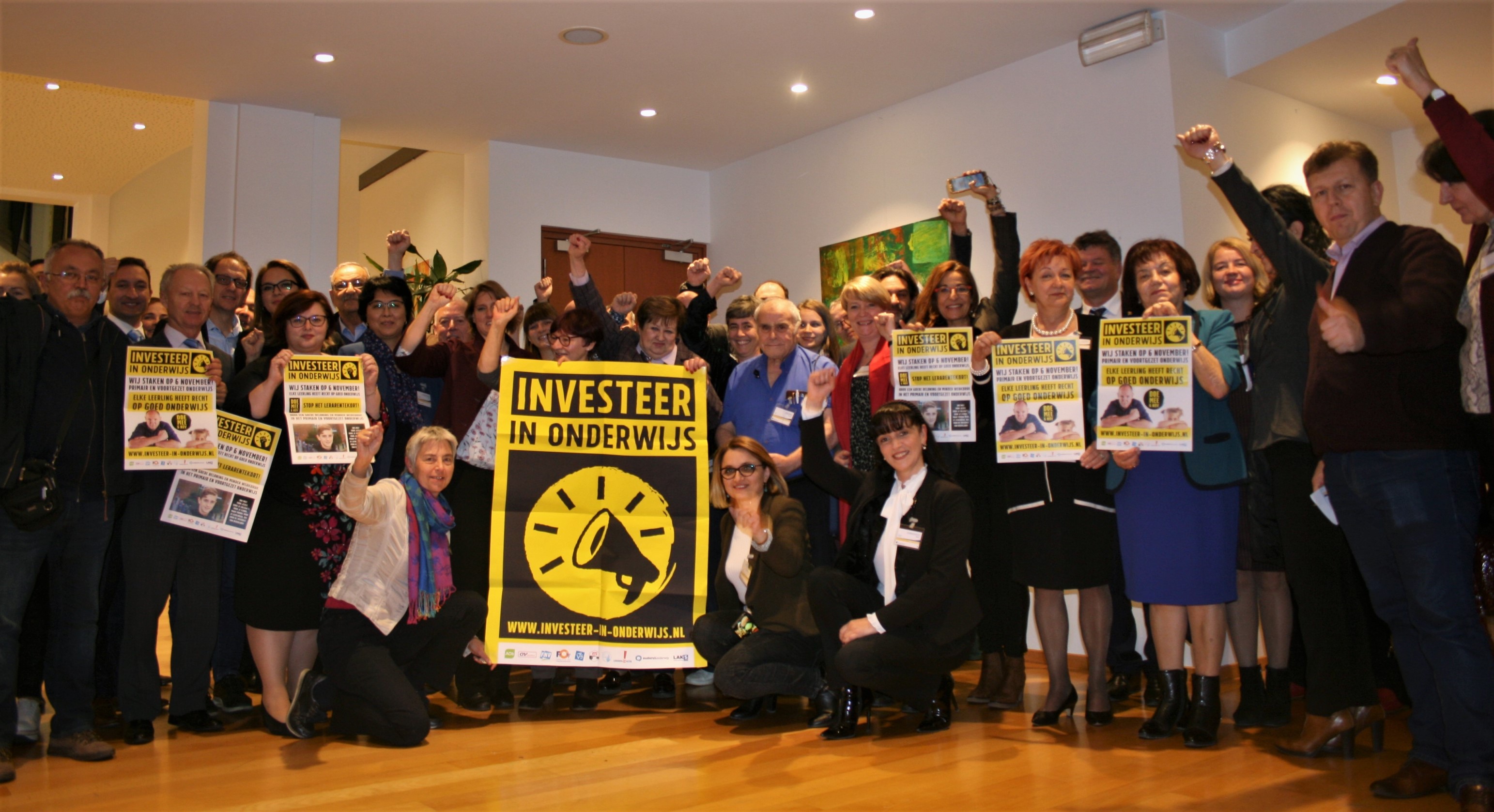Teachers strike for a sustainable solution to funding crisis and staff shortages in the Netherlands
Published:
Schools in the Netherlands are struggling to pay their way, while a teacher shortage is getting worse and worse. The government offered a one-time €460 million boost, but teachers are standing firm for structural increases in funding that can preserve the profession and guarantee quality education for all in the Netherlands.
Like many European countries, the Netherlands is experiencing a slow-motion disaster in its teaching profession. Schools have suffered under grinding austerity for years. Staff shortages have increased enormously. Primary schools struggle to find teachers for their classes, combine classes or just put classes under the surveillance of a parent or other volunteer. Secondary schools are cancelling certain subjects. Burn out rates are rising in all education sectors.
Excessive workload, a lack of funding and an unjustified pay gap between secondary and primary teachers have pushed many teachers and other education workers to leave the profession altogether. A forward-looking and long-term allocation of funding is vital to fight teacher shortages and make the teaching profession attractive.
After another year of campaigning and a national strike in March, with again no result, the unions called for a new strike on November 6. Last Friday, just a few days before the announced date, the government suddenly offered a one-time €460 million spending boost. But this long-standing crisis needs long-term solutions. ETUCE member organisation AOb is going ahead with a national strike today.
The ETUCE campaign ‘Shape the Future of Europe with Teachers’ makes clear that sustainable increases in public funding are needed to attract and retain great teachers in a time where demands are increasing and the educational workforce is aging. We stand with AOb and Dutch education personnel in their justified struggle for a reasonable long-term funding solution which will guarantee the future of quality education in the Netherlands. We call on the Dutch government to approve the sustainable, fair and meaningful funding increase the country’s education sector urgently needs.

Meeting in Brussels on 5-6 November, the ETUCE Committee sent its full solidarity to striking colleagues in the Netherlands
FURTHER INFORMATION FROM AOb
- If nothing changes then the Netherlands will have a shortage of 10370 full time teachers in 2028 (this means actually more teachers, as many work part time)
- Burn-out rates are far higher in education (average 22.1 % in 2017) than in other sectors (average 15.9%). Burn out rates in primary education have quickly risen to 24.1%.
- This strike is supported by many school boards, which refrain from witholding salaries, are organizing other activities or offering “short leaves”.
- Parents’ organisations are also supporting the strike.
- There will be no central demonstration, but many regional initiatives. Politicians will be overloaded with tweets and other social media messages in order to make them aware of the needs in education.
- Currently 4271 schools have announced to be closed. Keep checking AOb’s strike website for the latest updates.